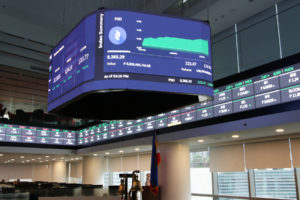Tycoon Lucio Tan-led Philippine National Bank (PNB) expects to unlock about P80 billion from an ongoing program to monetize valuable but currently low-earning real estate assets, thus boosting lending activities in the years ahead.
At a press briefing on Friday, PNB president Wick Veloso said once bank regulators approve its asset monetization program, this could be converted into P80 billion in new loans.
PNB has not disclosed details of the program but earlier bank presentations to investors cited three valuable assets waiting to be monetized: the 10-hectare existing head office along Macapagal Avenue, the old Allied Bank building in Ayala Avenue and the 8,000-square-meter prime lot foreclosed from musician Ramon “RJ” Jacinto. The total fair value of these three properties was earlier estimated at P50 billion.
Veloso’s latest estimate of P80 billion that PNB could unlock from its entire asset monetization program is nearly double the bank’s current market capitalization of P43 billion.
“I expect the monetization [program] that we have submitted—of course I can’t provide other details but if we’re successfully able to get the nod of the regulator, which we aim for within the year—that allows us P80 billion worth of more loans,” Veloso said.
Assuming a conservative net interest margin of 3 percent, Veloso said this would give the bank an additional P2.4 billion in annual net interest income for PNB.
As of end-September, PNB’s net loan book stood at P577.1 billion, down by 12.3 percent from the end-2019 level partly due to the net paydown of loans and receivables.
For next year, assuming a modest 5-percent economic growth, Veloso said PNB was expecting to make at least P1 billion in operating profit before credit provisions and taxes a month or a total of P12 billion, based on conservative estimates. Combining this with P2.4 billion in interest earnings from the additional loans and about P9 billion in potential loan-loss provisions that the bank could gradually claw back, Veloso said PNB could post at least P23 billion in operating profit before tax.
This is, in turn, seen to restore the bank’s return on equity (ROE) to pre-COVID-19 level of more than 9 percent, Veloso said. In the first nine months, the bank’s ROE fell to 3.35 percent due to higher credit-provisioning expenses.
In the first nine months, PNB’s attributable net income amounted to P3.86 billion, down by 39 percent year-on-year. Operating profit before credit provisions and taxes amounted to P14.1 billion, 42-percent higher than the level in the same period last year.
At the same time, Veloso said PNB would embark on a number of initiatives to improve operating efficiency.
The bank spent 58.66 centavos to earn every peso in the first nine months, lower than the 66.79 centavos spent in the same period last year. However, this was still higher than the average cost-to-income of other large banks, some of which have pared their cost to below 50 centavos for every peso earned.
“Our performance this [third] quarter continues to show improvements in core income despite the bank’s prudent approach in asset deployment amid the difficult operating environment. Our strategies, backed by a strong franchise and loyal customer base, helped the bank adapt to the pandemic conditions,” Veloso said. “We look forward to seeing greater opportunities for PNB to help support our customers as they navigate through the pandemic. We continue to enhance our capabilities so that we are able to play a more active role in rebuilding the economy,” he added.


